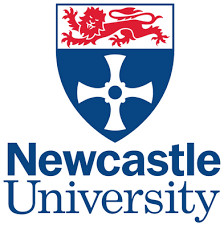
About the course
Our Computer Security and Resilience MSc focuses on information security and the analysis of complex systems. It covers fundamental topics in dependability and system validation.
Our Research
Computer Sciences and Informatics 9th in UK with 90% outstanding research impact.
Research Excellence Framework 2014
You will develop the skills to design and assess computing systems to be secure and safe in the face of failure or attack. You will have the opportunity to assess a real system, such as a cybercrime incident room.
Computer security and resilience are dynamic areas of computing science. Security is not just about cryptography - it's about understanding the flow of information. Resilience is the capacity of a system to recover from damage, whether caused by errors made during software design, by accidental misuse, by human error or by malicious attack. Analysing and designing secure and reliable systems involves taking all these factors into account.
The course is intended for honours graduates with a degree in computing science, or a discipline with a significant computing component (eg, engineering, systems engineering or mathematics). We also value relevant industrial computing experience and transferable skills.
Newcastle has a first class record of research and development in dependable and secure computing. We have leading international research groups and three research centres focusing on a wide range of computer science fields, including:
- security and resilience
- dependable systems
- cybercrime
- cloud computing
The staff teaching you have international reputations for their contributions to the field. Many of them have extensive experience as practitioners in industry as well as research scientists.
As a student on this programme you will be encouraged to play a full part in the life of the School, taking advantage of dedicated computing and study facilities, participating in seminars delivered by researchers and distinguished external speakers.
Our experienced and helpful staff will be happy to offer help with all aspects of your course from admissions to graduation and developing your career beyond. You will have the experience of working as a team with the help and support of fellow students as well as staff.
Modules for 2019 entry
Compulsory modules
Compulsory modules
- CSC8102 System Security
- CSC8105 System Validation
- CSC8201 The Challenge of Dependable Systems
- CSC8202 Information Security and Trust
- CSC8204 High Integrity Software Development
- CSC8207 Security Analysis of Complex Systems
- CSC8208 Reserach Methods and Group Project in Security and Resilience
- CSC8299 Project and Dissertation in Computer Security and Resilience
Optional modules
You take optional modules to the value of 10 credits from the following list:
- CSC8404 Advanced Programming in Java
- CSC8406 Object-oriented Programming*
*If you don't have much programming experience on entry you need to take this module.
Careers
Curious about what our graduates have gone on to do? Find out about opportunities they’ve pursued, and how we can help you develop your career.
8th in the UK for employability (out of 31 participating institutions).
International Student Barometer Autumn 2017
Graduate destinations
Our graduates have an excellent record of finding employment. Recent examples have included:
- Data Warehouse Consultant at NCR Corporation
- Senior Quality Assurance Engineer at Ixia
- Civil Servant at GCHQ
95% of our 2016 UK and EU postgraduate graduates progressed to employment or further study within six months of graduating. 92% of those in full-time paid employment were in professional or managerial jobs.
Destinations of Leavers from Higher Education Survey 2015/16 postgraduate leavers
Careers Service
Our award-winning Careers Service will help you to explore your options and make informed choices to achieve your career goals.
Work experience
Work experience placements are a great way to develop relevant skills to excel in your chosen career.
Entry Requirements
A 2:2 honours degree, or international equivalent, in computer science or a discipline with significant computing content, such as:
- mathematics
- engineering
- systems engineering
We will also consider your application on an individual basis if you have lower or non-standard qualifications provided you have several years of relevant industrial computing experience.